Disability and Accessibility in Social Services Award
This award recognises a public authority or social services provider that has demonstrated exceptional leadership in advancing accessibility, inclusion, and quality of life for people with disabilities. It honours initiatives that break down barriers, promote community and independent living, and ensure equal access to social services for individuals with disabilities.
Examples of key areas in disability and accessibility in social services:
- Inclusive and Accessible Social Services – Ensuring that all public services, from healthcare to housing, are designed to be fully accessible and responsive to the needs of people with disabilities.
- Independent Living and Community Support – Expanding access to personal assistance, home adaptations and community-based care, reducing reliance on residential care.
- Education and Early Intervention – Ensuring children and young people with disabilities receive inclusive education and early support services to enhance their opportunities.
- Workforce Development and Disability-Inclusive Employment – Supporting job opportunities for people with disabilities through training, workplace accommodations, and inclusive hiring policies.
- Digital and Technological Accessibility – Leveraging assistive technology, AI, and digital solutions to enhance accessibility and improve service delivery.
Special consideration is given to initiatives that:
- Adopt an innovative approach to improving accessibility and disability inclusion in social services.
- Empower individuals with disabilities, ensuring their voices are heard in service design, delivery and assessment.
- Demonstrate measurable impact, showing how services have improved the quality of life, autonomy, and inclusion of people with disabilities.
- Promote cross-sector collaboration, integrating disability-inclusive policies across social care, health, education, and employment sectors.
- Are scalable and transferable, offering models that can inspire similar policies and practices across Europe.
Disability and Accessibility in Social Services Award 2025 Winner
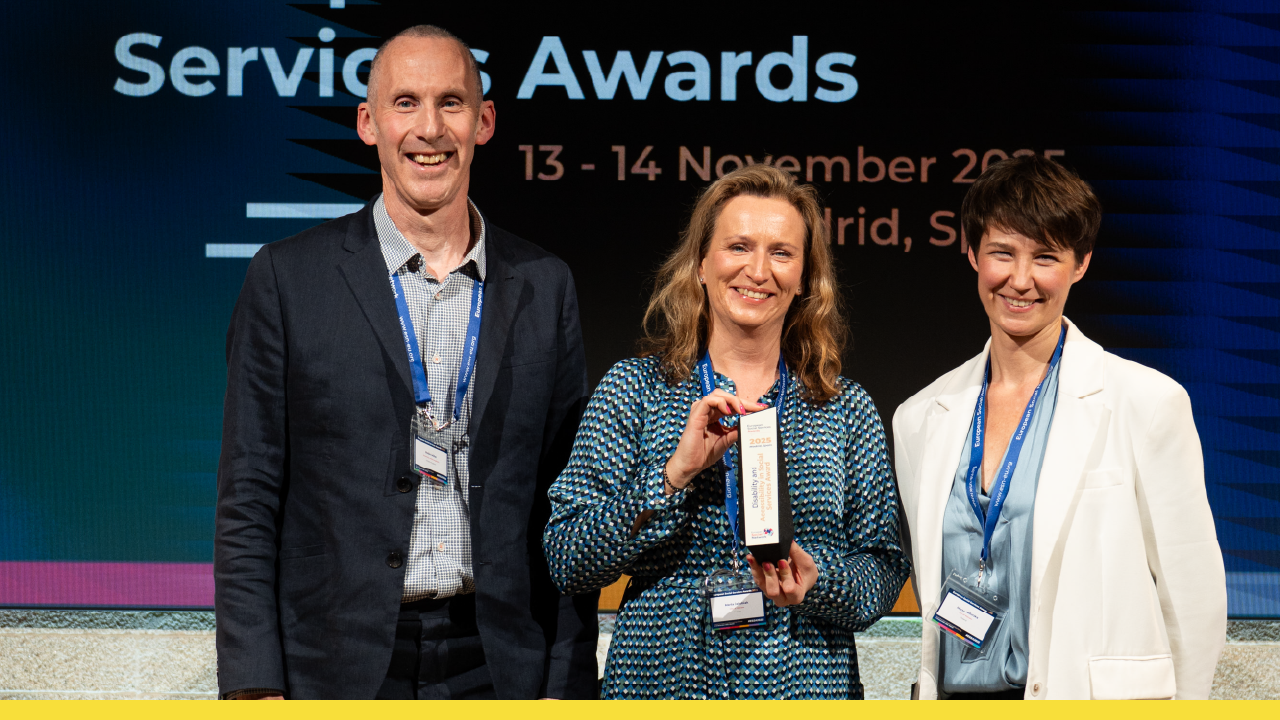
Title: “Active Every Day”
Organisation: City of Warsaw, Poland
More information here: https://en.um.warszawa.pl/
The City of Warsaw has created and implemented the ‘Assistant to a Person with a Disability’ Programme to strengthen the autonomy and self- realisation of people with disabilities. The City offers services to support people with disabilities with daily life activities, including personal assistant services, free citywide rehabilitation equipment rental service and specialised door-to-door transport services. The city supports its residents in overcoming barriers and provides concrete solutions that make it easier to function in different areas of life.
The services are aimed at people with motor, sensory and intellectual disabilities who have a moderate or severe degree of disability. The city also provides access to an online or live sign language interpreter for people who are deaf or hard of hearing. The city conducts ongoing monitoring of the assistant services provided, allowing residents to provide feedback on each of them. Approximately 4,000 people benefit from these services annually.
Disability and Accessibility in Social Services Award 2025 Nominees
Title: "Accessible Participant Observation to Assess Satisfaction in Social Care Centres"
Organisation: Regional Government of Madrid - Department of Family, Youth and Social Affairs
More information here: https://www.comunidad.madrid/calidadserviciossociales
This project introduces an innovative and inclusive participant observation method to assess the experience and satisfaction of persons with disabilities, or older people (65+) with severe or very severe cognitive impairment in social service centres in the Community of Madrid, enabling valid data to improve policies, care models, and service quality evaluation.
The project addresses the challenge of obtaining valid and comparable information on the experience and satisfaction of social care centre clients. It does this by enabling the creation of valid data to improve policies, care models, and service quality evaluation.
It has been designed as a flexible, adaptable tool suitable for centres with varying resource capacities. The project initially reached 11,536 people across Madrid. However, with plans to develop and integrate it as a web-based tool, the initiative has broader potential reach, being adaptable and easily replicated in social care centres in other regions and settings. This contributes to improving the quality, accessibility and participation of these vulnerable populations in the evaluation of social services.
Title: “Leaping Together”
Organisation: Fuenlabrada City Council, Spain
More information here: https://diversidad-funcional.ayto-fuenlabrada.es/sata-conmigo.php
The Leaping Together project promotes inclusion by offering leisure opportunities for people with intellectual disabilities, while also challenging stigma and transforming public perceptions of intellectual disabilities by promoting agency, visibility and belonging.
The Leaping Together project stands out for its ongoing collaboration with all departments of the Fuenlabrada City Council, and it also benefits from the active participation of special education centres, occupational centres and healthcare services, creating a comprehensive support network.
The project has been created and improved by actively listening to the voices of users and their families through the establishment of a monitoring committee. Comprising of representatives such as parents, guardians, relatives, participants and staff, the committee operates under a co-creation model. In 2025, the number of participants of the project was 194.
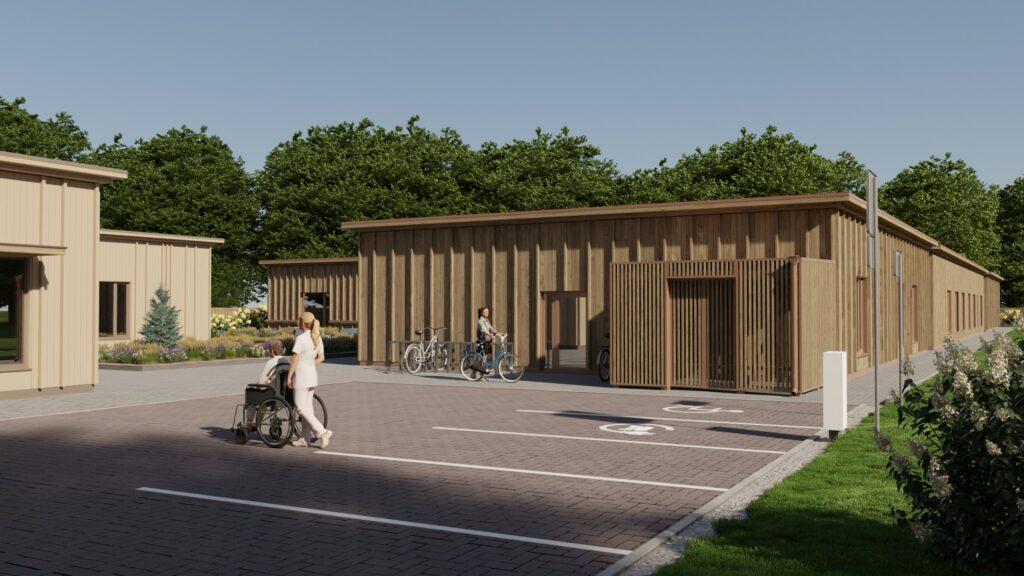
Title: “Development of Community-Based Social Service Infrastructure in Riga”
Organisation: Riga City Council - Department for Welfare, Latvia
More information here: http://www.ld.riga.lv/
This project offers a modern, community-based alternative to institutional care for adults with intellectual or multiple disabilities. Developed through an innovative public–civil society partnership, it features a group home for 16 residents and a day care centre for 20 people.
The project introduces a family-like group housing model and a daily activity centre, built on universal design and person-centred care. Professionals, such as occupational therapists, are involved to provide functional assessments and individual support plans, helping residents develop daily living, cognitive, and emotional skills.
Riga City Municipality has adopted this model as a blueprint for expanding community-based services. There are 136 people on the waiting list for the group home and day centre. A similar complex in Riga is currently being renovated and adapted for the provision of social services. Overall, the project has demonstrated substantial impact in resident development, family well-being, and professional service practice.
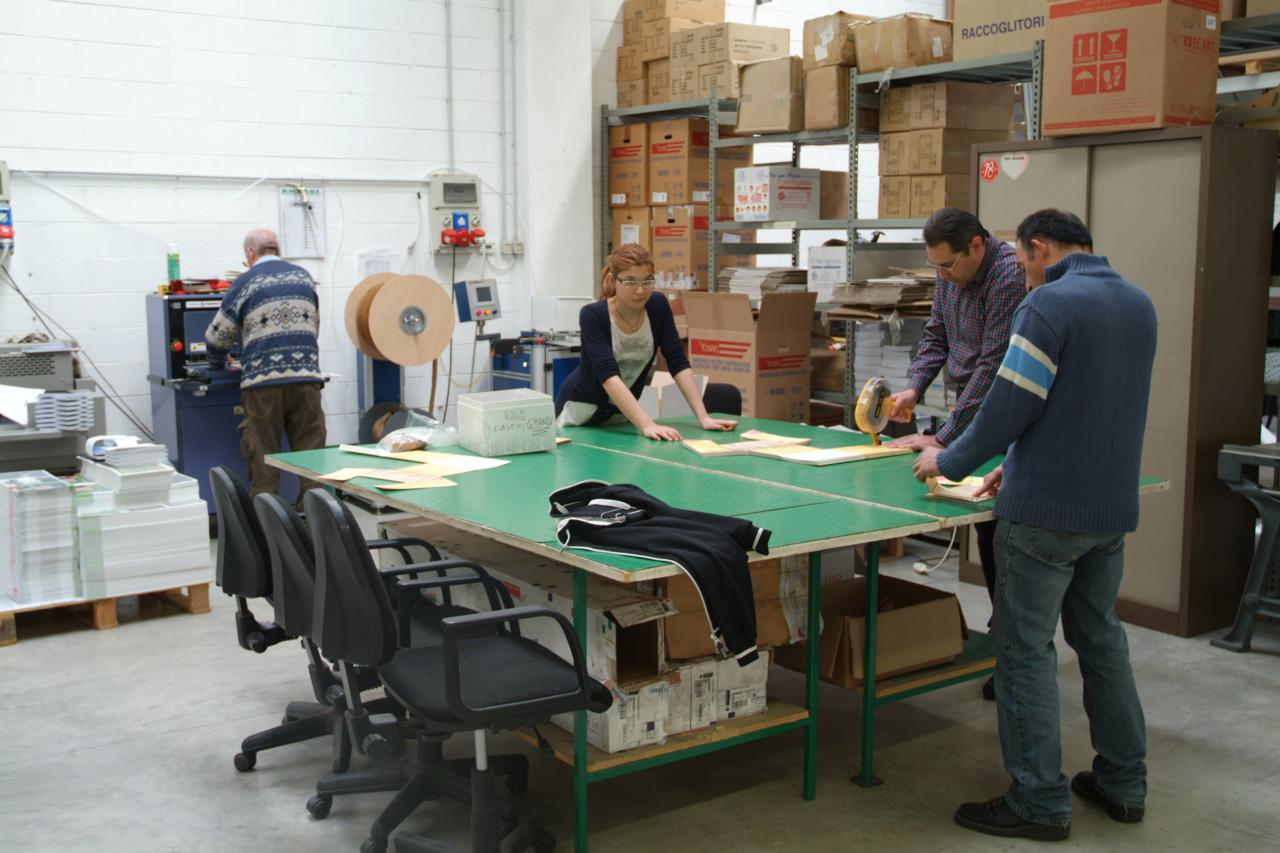
Title: “INLAV – Integrated Job Support for Individuals with Mental Health Disabilities”
Organisation: Special Public Company "Consortile Comuni Insieme per lo Sviluppo Sociale" through the Employment Integration Unit (NIL), Italy
More information here: https://www.comuni-insieme.mi.it/
The INLAV project, addresses the objectives of supporting and assisting people with menta health disabilities in entering employment. The entire initiative has fostered collaboration between public and private entities, with the goal of building a cooperative network aimed at identifying reasonable accommodations in the workplace, creating protected work trial environments, and developing gradual and personalised activities tailored to the individual.
Additionally, the project focused on establishing a common language among professional practitioners involved in the care and support of individuals with mental health disabilities. The pilot project made it possible to introduce innovative practices in the job placement of people with disabilities.
Prior to the project, it was the person with a disability who had to adapt to the practices and frameworks of the services, rather than the services adapting to the person’s needs. A total of 17 people were referred to the INLAV project by social and healthcare services.
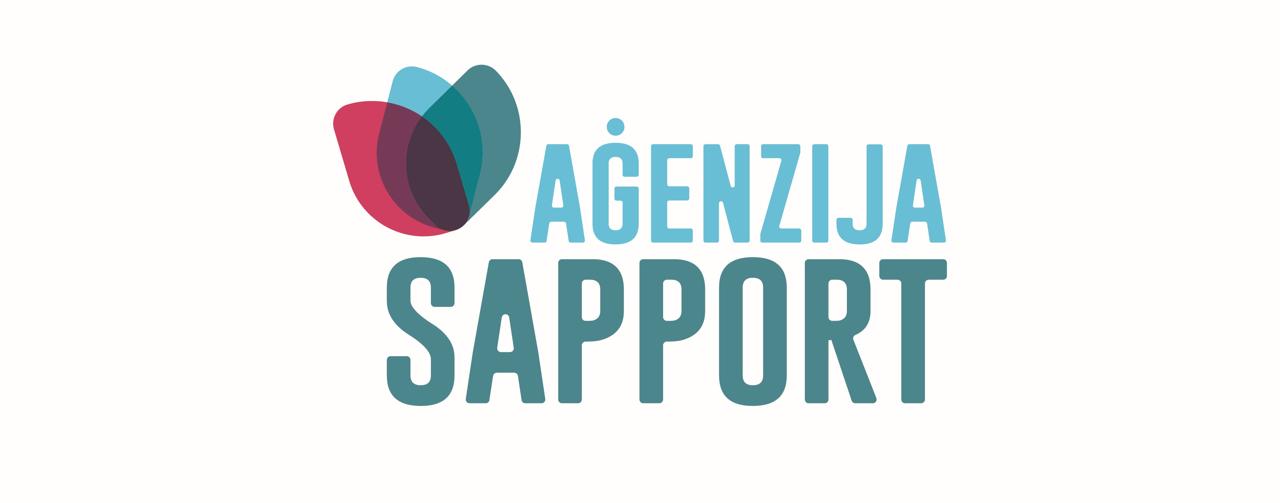
Title: “Sonia Tanti Independent Living Centre (STILC) – Adaptive Driving Clinic”
Organisation: Agenzija Sapport, Malta
More information here: https://sapport.gov.mt/services/sonia-tanti-independent-living-centre-stilc/
The Adaptive Driving Clinic provides people with disabilities the opportunity to access tailored professional assessments, training, and expert consultation on vehicle adaptations and modifications. These services are provided by occupational therapists and a trained driving instructor. Service users are also supported with guidance on programmes that help them with financial support to acquire the necessary vehicle adaptations.
The initiative adopts an innovative, person-centred model, integrating assessment, training, and practical driving solutions under one national service. The service supports national efforts to implement inclusive transport policies and has the potential to inspire similar programmes across Europe.
A total of 431 adapted driving lessons were delivered in 2024, enabling clients with varying degrees of physical disabilities to engage in real-world driver training. It is the only service in Malta offering specialised assessments for individuals with disabilities seeking to drive, advancing accessibility, inclusion, and autonomy.
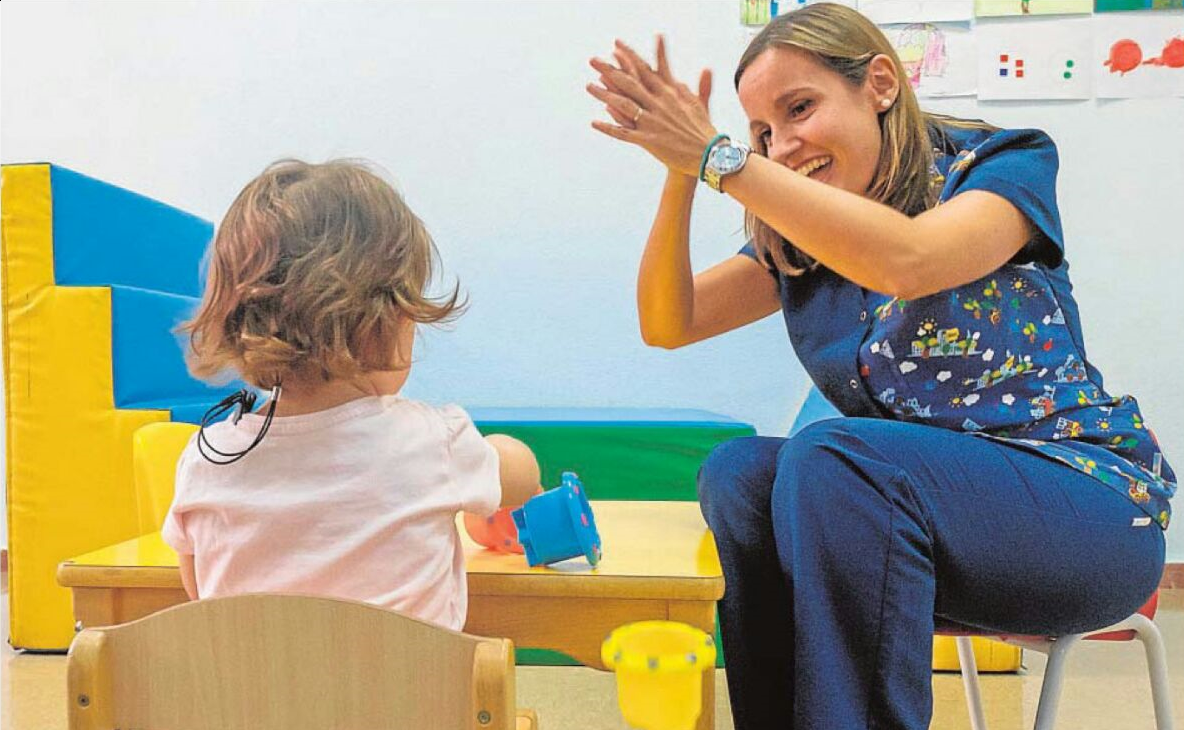
Title: “The Public Early Care Service of Castilla y León”
Organisation: Regional Government of Castilla y Leon - Department for Social Services, Spain
More information here: Project information
The Public Early Intervention Service in Castilla y León is a continuous improvement plan based on the aim of changing the paradigm around person-centred care, with practices centred on the family, the environment and support for the life projects of minors and their families.
The service is based on a system of public, universal, and free responsibility that guarantees access for all minors and their families to the early care service of the Regional Government of Castilla y León, regardless of their place of residence, whether urban or rural.
The project serves around 6,000 children, but there is no limit to the number of children that can be reached through this project. The methodology of this project is designed to be scalable and transferable and can inspire similar policies and practices across Europe. The project participates in the development of a roadmap for early care, something that currently does not exist in the context of Spain and Europe.
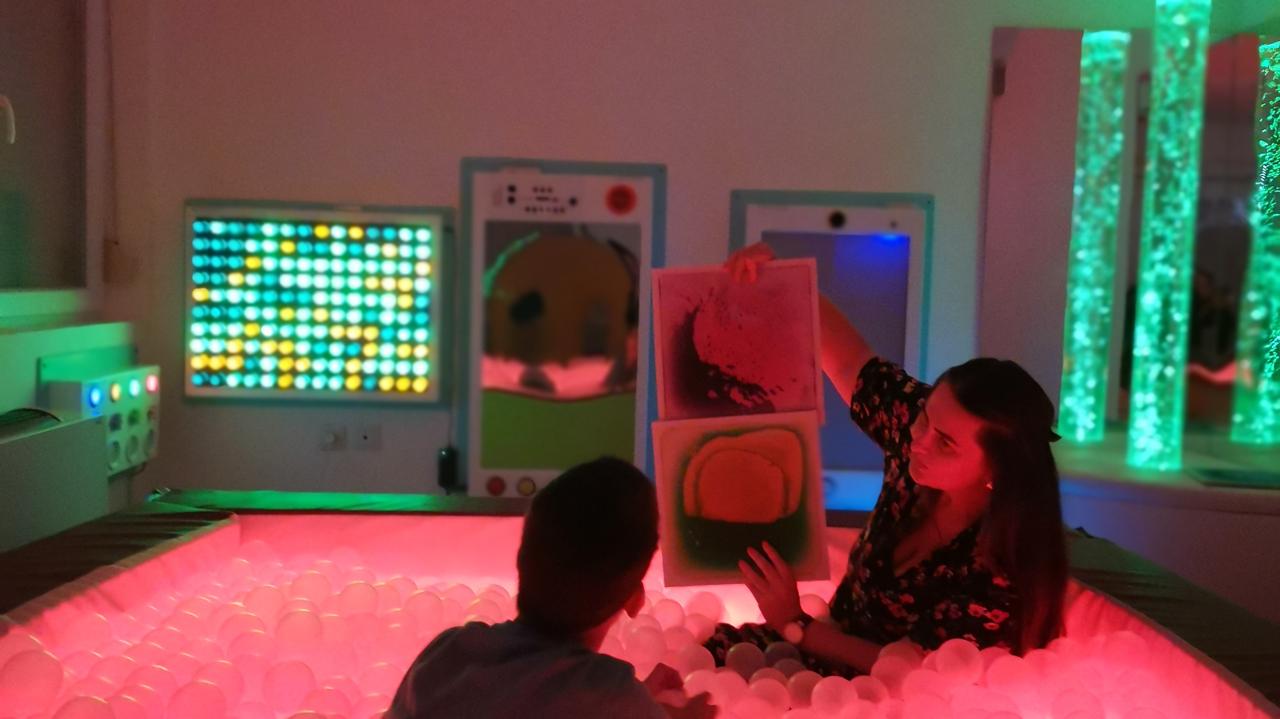
Title: “DGASPC Arad: Enhancing Cognitive Growth through Sensory and Biofeedback Therapy”
Organisation: General Directorate of Social Assistance and Child Protection Arad (DGASPC Arad), Romania
More information here: https://www.dgaspc-arad.ro/
The SIMBA Centre integrates a sensory room with real-time biofeedback using Muse headbands to personalise cognitive therapy for children with intellectual disabilities, improving focus, emotional regulation, and engagement.
Each year, approximately 140 children are directly supported, with around 135-137 family members indirectly supported. This is the first publicly funded centre in the region to combine sensory stimulation in a sensory room with a deicate device brainwave monitoring, enabling therapists to make data-informed decisions in real time.
The project provides training and support to staff on how to interpret neuro-data and integrate it with classical behavioural or cognitive therapy goals. This initiative redefines the standard of care in the local system by proving that therapeutic digitalisation is feasible, affordable, and highly beneficial when adapted to the child’s needs and context.